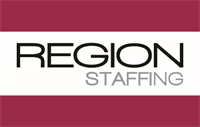In the past few years, especially after the pandemic, the rise of remote work has completely changed how businesses run and how employees see their work-life balance. For companies and staffing agencies, getting a handle on how remote work affects employee retention and job satisfaction is key.
Impact of Remote Work on Employee Retention
Remote work usually means employees stick around longer. Research shows that flexible work options can significantly cut down on turnover. Employees with the freedom to work from home often enjoy a better balance between work and life, thanks to less commuting and a more flexible schedule. This balance is a big reason why they stay with a company.
But remote work isn’t without its problems, especially when it comes to keeping people on board. Not being physically in the office can make employees feel isolated or less connected to the team, which can make them less loyal and engaged. To make the most of remote work for keeping employees, companies need smart strategies to tackle these issues.
Remote Work and Job Satisfaction
Job satisfaction in remote settings depends on several factors. The freedom and flexibility of remote work can lead to higher productivity and a sense of empowerment among employees. But it can also bring challenges like isolation and communication issues, which can hurt job satisfaction.
Tech plays a big part here. It can make communication and collaboration easy, but it can also be frustrating if it’s not used right. Businesses need to invest in solid tech solutions and training to make sure remote work makes employees happier, not more stressed.
Supporting Clients with Remote Workforces
Staffing agencies are crucial in helping businesses adapt to remote work. They can spot candidates who are not only skilled but also a good fit for remote environments. Beyond just placing these candidates, staffing agencies can help clients develop and put in place effective remote work policies.
Offering training and resources is key for a smooth switch to remote work. Agencies can provide workshops on remote communication, time management, and using digital tools to make sure both employers and employees are ready to succeed in a remote setting.
Best Practices for Maintaining a Satisfied Remote Workforce
To keep a remote workforce engaged and happy, several best practices are vital:
- Effective Communication Tools and Strategies: Picking the right communication platforms is crucial. Tools like Slack, Microsoft Teams, and Zoom help keep everyone connected. Clear, consistent communication sets expectations and builds a strong team, even when people are spread out.
- Regular Feedback and Employee Engagement Initiatives: It’s important to listen to employees and act on their feedback in a remote setting. Regular surveys, one-on-one meetings, and open forums can quickly spot and solve any issues. Remote team-building and virtual social events also help create a sense of community and belonging.
- Fostering a Strong Remote Work Culture: Building an inclusive and supportive environment is key to a great remote work culture. Companies should make sure their core values show up in every part of remote work, from daily tasks to social interactions. This means making sure all employees feel valued and included, no matter where they are.
- Supporting Mental Health and Well-Being: Remote work can make mental health issues worse due to isolation and the blurred lines between work and home. Companies should have programs and policies that support mental health, like flexible schedules, mental health days, and access to counseling services.
- Training and Development Opportunities: Making sure employees have chances to learn and grow is crucial, even in remote setups. Staffing agencies can help employees access online courses, webinars, and workshops to develop new skills and advance their careers.
Contact Region Staffing
The shift to remote work has clear effects on employee retention and job satisfaction. By understanding these dynamics and using the right strategies, businesses can use remote work to build a more resilient and satisfied workforce. For expert advice and support in managing a remote workforce, businesses should reach out to the pros at Region Staffing. With their know-how and customized solutions, companies can effectively adapt to and thrive in the changing work world.

